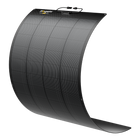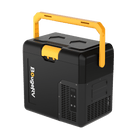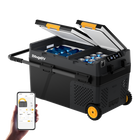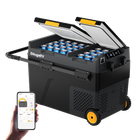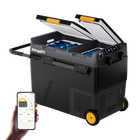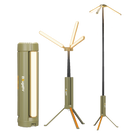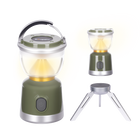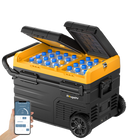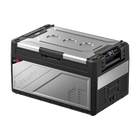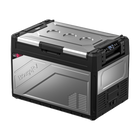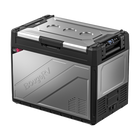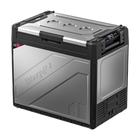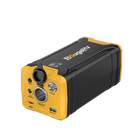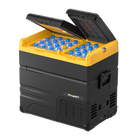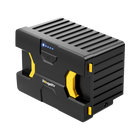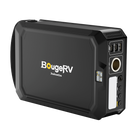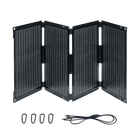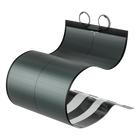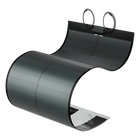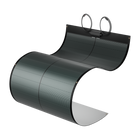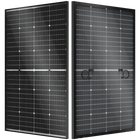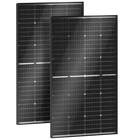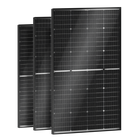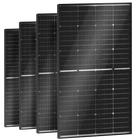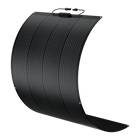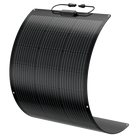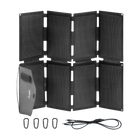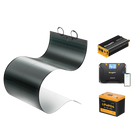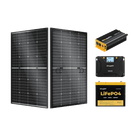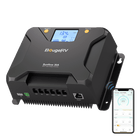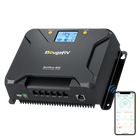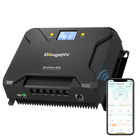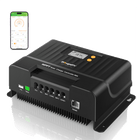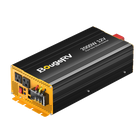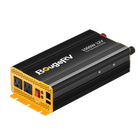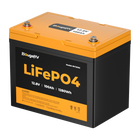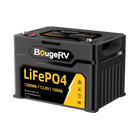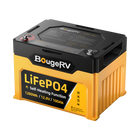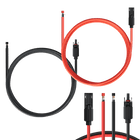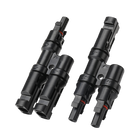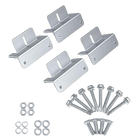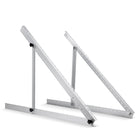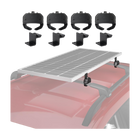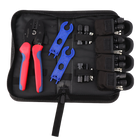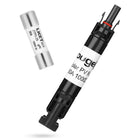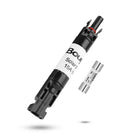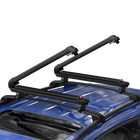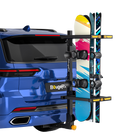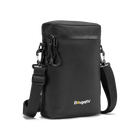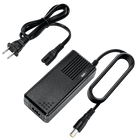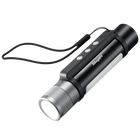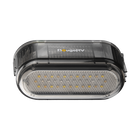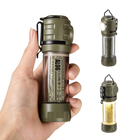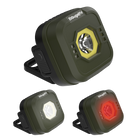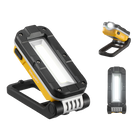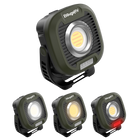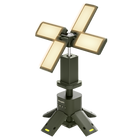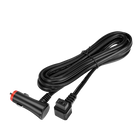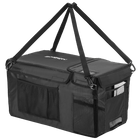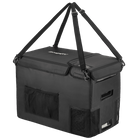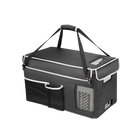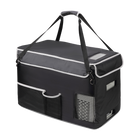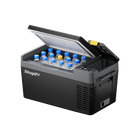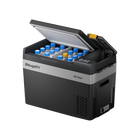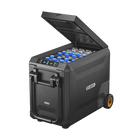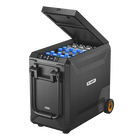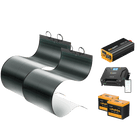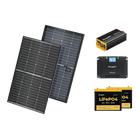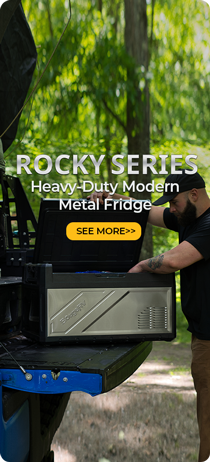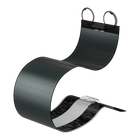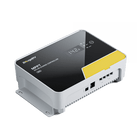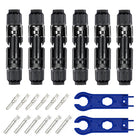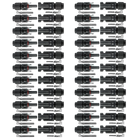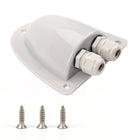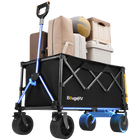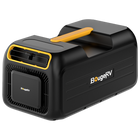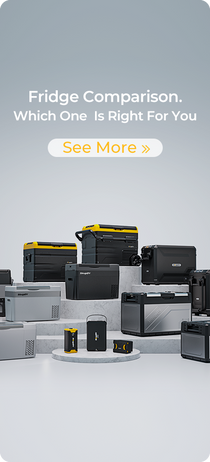100W vs. 300W Solar Panels: Differences and Making the Right Choice

Solar panels are all the rage these days, riding the wave of green energy and sustainability. If you're thinking about harnessing the power of the sun, one big decision is staring you right in the face: what kind of wattage do you need? It's all about finding that sweet spot between power and size.
In this post, we're going to dive into a head-to-head comparison of two crowd favorites: the 100W solar panels vs. 300W solar panels. We’ll break down the characteristics of each panel, their ideal uses, pros and cons, and how they compare side-by-side. By the end of this blog, you will have a better understanding of which solar panel is right for you!
Understanding Solar Panel Wattage
Solar panel wattage refers to the amount of energy a panel can produce in a given time. The higher the wattage, the more energy the panel can produce. It's important to choose a solar panel with the right wattage for your needs to ensure you're getting the most out of your energy source.
100W Solar Panels Overview
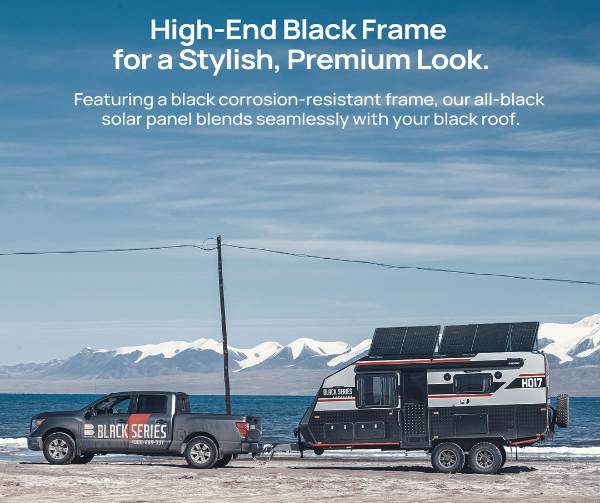
100W solar panels are ideal for small to medium-sized energy needs, such as charging electronic devices or powering small appliances. They are characterized by their smaller size and lighter weight compared to 300W panels, making them easy to carry around and use on the go.
One of the main advantages of 100W solar panels is their portability, which makes them perfect for camping, RVing, portable charging stations, and other similar uses. Additionally, they are relatively more affordable compared to 300W panels, which can be a significant factor if you are on a budget. However, it's important to note that 100W solar panels can not power larger appliances or provide enough energy for extended periods of time.
300W Solar Panels Overview
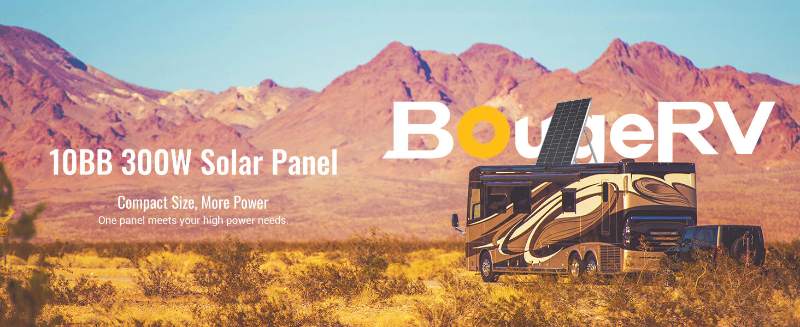
300W solar panels are ideal for meeting larger energy needs, like powering larger appliances in homes or RVs. They are larger in size and can produce more energy than 100W panels. However, this increased capability makes the 300W solar panels more expensive, heavier, and less portable.
The primary advantage of 300W solar panels is their ability to produce more energy to power larger appliances; nonetheless, when determining if they're the right fit for your energy requirements, it’s important to consider both the cost and portability factors.
Side-by-Side Comparison Table
Now, let's take a closer look at this side-by-side comparison table to learn the differences between 100W and 300W solar panels.
|
100W Solar Panels |
300W Solar Panels |
|
|
Price |
Cheaper |
Higher |
|
Size |
Small |
Larger |
|
Weight |
Lighter |
Heavier |
|
Power Output |
Around 100W |
Around 300W |
|
Cost |
More Affordable |
More Expensive |
|
Lifespan |
Around 25 years |
Around 25 years |
|
What will it run? |
Small Devices |
Small to Medium Devices |
-
Power output and efficiency: A 100W solar panel produces less electricity than a 300W solar panel, making it suitable for charging small appliances and devices that you do not need to run continuously.
-
Size and installation space: 100W solar panels are smaller and require less space for installation compared to 300W panels. A typical 100W panel measures around 47 x 21.3 x 1.4 inches, but more compact options are available, such as BougeRV’s 100W rigid panel at 39.17 x 21.26 x 1.38 inches, and the laptop-sized Paso CIGS foldable solar panels.
-
Cost: In general, 100W solar panels are less expensive than their 300W counterparts. At BougeRV, our 100W solar panels are priced between $89.99 and $459.99, while our 300W solar panels cost $459.99. (These prices are accurate as of the time of writing this blog; please refer to our solar panel collection for the latest pricing.)
-
Lifespan and durability: Both 100W and 300W solar panels have a lifespan of about 25 years.
-
Compatibility with solar power systems: Both 100W and 300W solar panels are versatile and can be integrated into a wide range of solar power systems. This includes residential and commercial rooftop installations, as well as off-grid setups for RVs.
So, What Will a 100-watt Solar Panel Run Exactly?
A 100W solar panel can generate between 300-600 watt-hours (Wh) of energy in a single day. It is capable of powering various small appliances and electrical devices, including laptops, smartphones, LED lights, cable boxes, exhaust fans, water pumps, and more. Additionally, a 100W solar panel can also run a 12V refrigerator.
And What Can a 300-Watt Solar Panel Run?
A 300-watt solar panel receiving 8 hours of sunlight daily will generate approximately 2 kilowatt-hours (kWh) of energy each day. This amount of power produced by a 300W solar panel can support both small and larger appliances, including lights, phones, laptops, TVs, small refrigerators, computers, ceiling fans, rice cookers, and even electric fences. Additionally, this panel can provide sufficient energy over extended periods, making it an excellent option for powering appliances in homes or RVs.
While a single 300W solar panel may be adequate for an RV or a small off-grid setup, an entire home would typically require multiple panels to fully meet its energy needs.
100W vs. 300W Solar Panel, Which One to Choose?
When choosing between a 100W and a 300W solar panel, it's important to consider your energy needs and the size of the appliances you want to power. A 300W solar panel is the better choice for powering larger appliances. In contrast, a 100W solar panel is sufficient for smaller appliances.
When it comes to home and RV use, a 300W solar panel may be more suitable for powering larger appliances in a home, while a 100W panel might be better suited for smaller appliances in an RV. However, there are also compact 300W solar panels available with high-efficiency solar cells that are lightweight enough for an RV. Ultimately, the choice depends on your personal preferences.
One 300W Panel or 3 X 100W Panels for RV?

Choosing between one 300W solar panel or three 100W panels for an RV depends on several factors, including installation flexibility, space limits, and whether you want a backup plan with multiple power sources.
A single 300W panel offers a more straightforward setup with less wiring and fewer mounting components. It's ideal if you have a large, unobstructed space on your RV's roof where the panel can be installed. With one solar panel, you'll also have fewer potential points of failure.
On the other hand, three 100W panels provide more installation flexibility. You can position them to optimize sun exposure, which is particularly useful if your RV has roof obstacles like vents, AC units, or satellite dishes. Individual panels can be angled differently to catch more sunlight throughout the day. Also, if one panel gets shaded or damaged, the others will continue producing power, providing a backup that's pretty important when you're counting on solar power in remote locations.
Ultimately, your choice will hinge on your specific RV layout and your energy needs. If space allows, the simplicity of a single larger solar panel is appealing, but for complex roof landscapes or reliability concerns, multiple smaller panels could be the smarter option.
Final Thoughts
In conclusion, picking between a 100W and a 300W solar panel boils down to what you need in terms of energy needs and the appliances you're looking to power. Both 100W and 300W solar panels have their own set of pros and cons, so weighing these is key when deciding which one to go for. When you choose the right solar panel that fits your needs, you'll be able to you're getting the most out of your solar panels and keep your appliances running smoothly without a hitch. Don't go any further—find the best BougeRV 100W and 300W rigid and flexible solar panels right here, right now!





